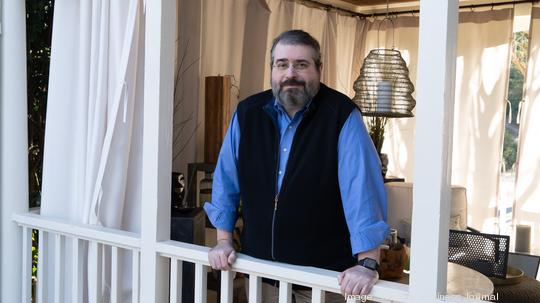
Days after closing on a $12 million equity round, Igor Jablokov, CEO of Raleigh AI startup Pryon, has advice for other entrepreneurs looking to capitalize on a hot funding market: Start making connections now.
Jablokov, a serial entrepreneur whose last startup, Yap, sold to Amazon and became part of its Alexa platform, has had a lot of success fundraising in recent years. In 2019, Pryon closed on nearly $25 million – and more is likely coming, he said.
So Inno picked his brain for fundraising advice – from the pitch deck to the first email to an investor.
Jablokov said entrepreneurs should treat their pitch deck as a fluid document. Pitch decks – a primer on the company and its outlook for a would-be investor – are vital tools in telling your company’s story, but that story can change, he said.
While there’s a basic template, your company is more complex than a few slides. Looking at pitch decks from successful companies online is one place to start.
“There are certainly basic things that have to be in there,” he said. “What is [the technology]? ... What’s the business case for people to adopt it? Are you changing people’s behaviors?”
An investor is likely to ask questions outside of that deck, meaning it’s good to be prepared past that basic set of talking points.
In Jablokov’s case, one of the investors in his latest round actually asked for a 20 year plan.
“That’s how far ahead some of these folks are used to looking,” Jablokov said, noting that, in some cases, the investors have actually run big tech companies.
Pitching in a pandemic can actually be more efficient than the traditional road show, he said. Before the pandemic, pitching to investors meant hopping on a plane.
“You’re flying all over creation because there’s limited capital pool locally, so you’re typically going to New York, you’re typically going to the Bay Area, and then you’re in your little rental car bumbling through, taking meeting after meeting,” he said.
In the pandemic era, however, the roadshow can happen on Zoom. But it still requires a lot of preparation before logging on. Jablokov said research is essential, particularly knowing which investors are investing in what kinds of companies.
“You don’t try to cold email these folks,” he advised. “You try to find someone in your existing network,” he said. “They go ahead and make the warm intro.”
And he said to start facilitating talks now – don’t wait until you need the funding.
“It takes years to develop a relationship with these folks,” Jablokov said. “We’re talking to folks and funds that probably won’t be relevant to us until a Series C or a Series D… You have to start building a rapport with their team. What value are they going to have? What metrics do you have to conform to for their limited partners?” Jablokov said he has already heard M&A “signals” for Pryon. But he’s not focused on that. He’s focused on execution, he said – and hiring. The 30-person firm will likely be adding a lot of engineering talent in the coming years, he said.
Pryon released its first product earlier this year, an automated natural language processing platform for the enterprise. The goal of the product is to add AI capabilities without the requirement of professional services or special skills.




